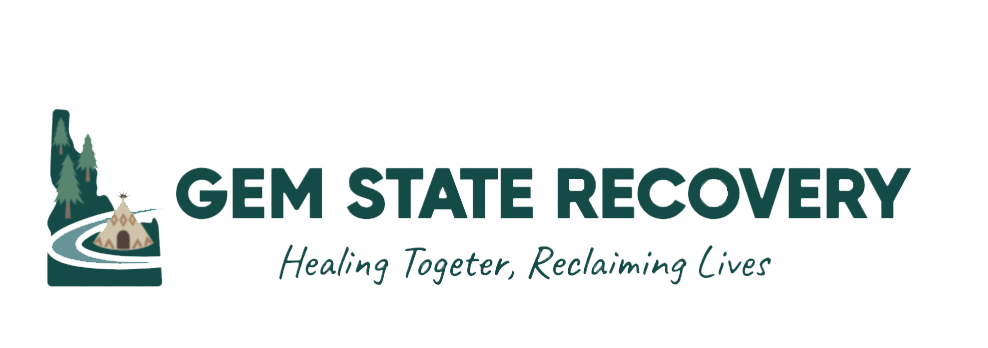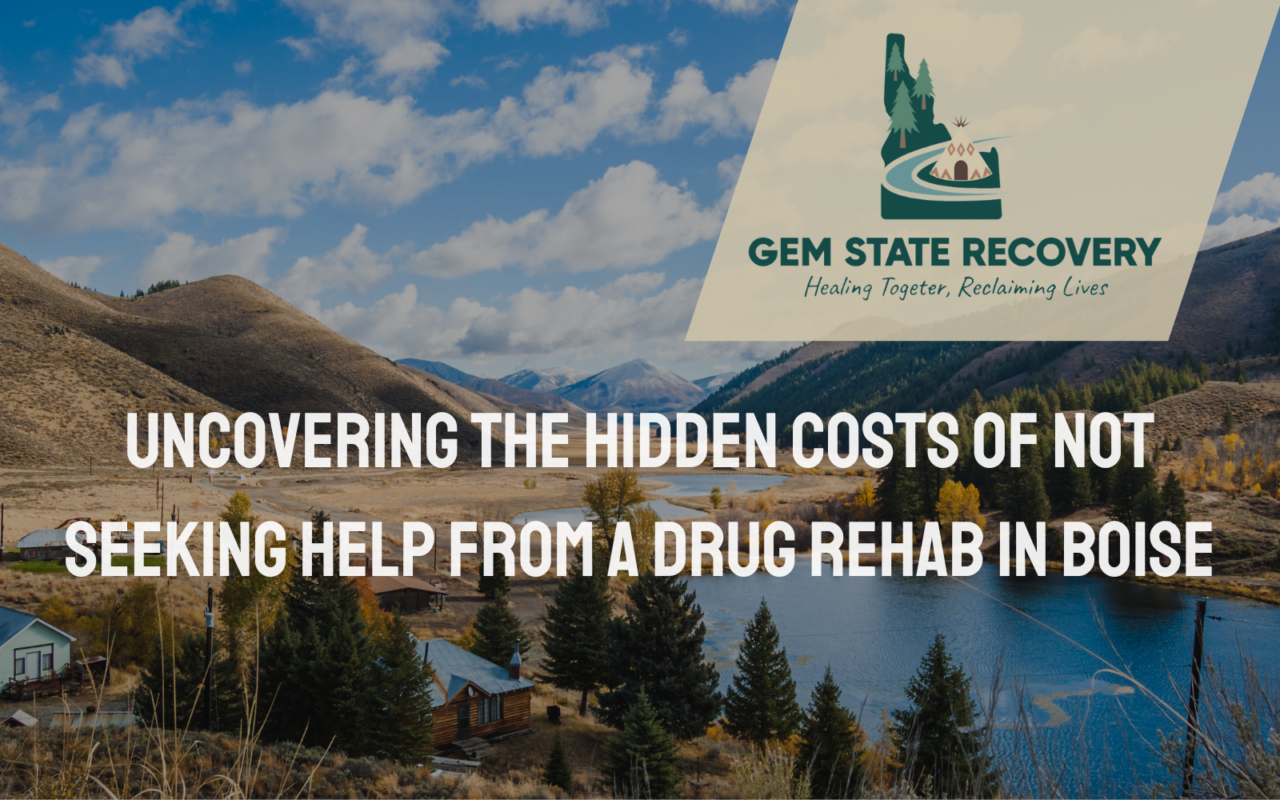Drug addiction is a pervasive issue that affects individuals, families, and communities. It doesn’t discriminate, impacting people from all walks of life. As the opioid crisis continues to ravage cities across the United States, Boise, Idaho, has not been spared. The consequences of drug addiction extend far beyond the individual, rippling out to cause financial burdens, health problems, and strained relationships. This blog aims to uncover the hidden costs of not seeking help from a drug rehab in Boise and highlight how taking that crucial step towards recovery can transform lives.
Understanding Drug Addiction
Definition and Types
Drug addiction is a chronic disease characterized by the compulsive use of substances despite harmful consequences. It alters brain function and behavior, making it challenging for individuals to quit on their own. Commonly abused substances include opioids, alcohol, cocaine, methamphetamines, and prescription medications. Each type of substance affects the brain differently, but all lead to dependency and addiction.
Causes and Risk Factors
Several factors contribute to drug addiction, including genetic predisposition, environmental influences, and mental health issues. Individuals with a family history of addiction are more likely to develop substance abuse problems. Environmental factors such as peer pressure, lack of social support, and exposure to drugs also play a significant role. Additionally, many people turn to drugs as a coping mechanism for mental health issues like depression, anxiety, or trauma.
Signs and Symptoms
Recognizing the signs and symptoms of drug addiction is crucial for early intervention. Physical symptoms may include weight loss, changes in appetite, and poor hygiene. Behavioral signs can range from secretive behavior and mood swings to neglecting responsibilities and withdrawal from social activities. Identifying these symptoms early can prompt timely intervention and increase the chances of successful recovery through drug rehab in Boise.
Hidden Cost #1: Financial Burden
Immediate Financial Impact
Drug addiction is expensive. The cost of purchasing drugs regularly can quickly drain an individual’s finances, leading to financial instability. Many addicts resort to borrowing money, maxing out credit cards, or even engaging in illegal activities to fund their addiction. This immediate financial impact creates a vicious cycle of debt and desperation. Seeking help from drug rehab in Boise can provide the necessary support to break free from this cycle and regain financial stability.
Long-Term Financial Consequences
The long-term financial consequences of drug addiction are staggering. Legal fees from arrests, medical bills from overdoses or health complications, and loss of income due to unemployment or reduced productivity all contribute to a significant financial burden. Additionally, the cost of repairing damaged property or relationships adds to the ongoing expenses of addiction.
Cost Comparison
Comparing the financial benefits of seeking treatment versus maintaining an addiction reveals a stark contrast. While rehab programs have upfront costs, they offer long-term savings by reducing healthcare expenses, legal fees, and lost income. Investing in treatment can lead to substantial financial savings and a more stable future.
Hidden Cost #2: Decline in Physical and Mental Health
Physical Health Deterioration
Drug addiction takes a severe toll on physical health, affecting numerous bodily systems and functions. Chronic substance use can lead to infectious diseases, organ damage, and other health complications that may be irreversible. For example, intravenous drug users are at a significantly higher risk of contracting bloodborne diseases such as HIV or hepatitis due to needle sharing and unsterile practices. Furthermore, long-term use of certain drugs can cause severe cardiovascular issues such as heart attacks or stroke, respiratory problems including chronic bronchitis and lung infections, and liver damage that can progress to cirrhosis or liver failure. The physical consequences of drug addiction are extensive, highlighting the importance of prevention and early intervention. Seeking help from a reputable drug rehab in Boise can be a crucial step towards recovery and improving overall health.
Mental Health Impact
The mental health ramifications of drug addiction are equally concerning and multifaceted. Substance abuse often coexists with mental health disorders like depression, anxiety, and bipolar disorder, creating a complex web of challenges. The cyclical nature of addiction and mental health issues creates a challenging environment for recovery, as each condition can fuel the other. For instance, individuals may turn to substances as a form of self-medication to alleviate their mental health symptoms, only to find that their substance use exacerbates those very symptoms. Neglecting to address these underlying conditions can exacerbate the addiction and lead to a deteriorating quality of life. Comprehensive treatment plans that address both addiction and mental health are crucial in breaking this vicious cycle and promoting long-term recovery and well-being. Facilities specializing in drug rehab in Boise are equipped to handle these dual challenges, offering integrated treatment to support holistic recovery.
Worsening Conditions Without Help
Without professional intervention, the physical and mental health problems associated with addiction only worsen over time. The longer individuals go without treatment, the more severe their conditions become. This decline makes it increasingly difficult to achieve recovery and regain a healthy, fulfilling life.
Benefits of Professional Treatment
Professional treatment offers comprehensive care that addresses both physical and mental health needs, ensuring a holistic approach to recovery. Rehab programs provide medical detoxification to safely manage the physical symptoms of withdrawal. In addition, they offer various forms of therapy, including cognitive-behavioral therapy and group counseling, which are essential for addressing the psychological aspects of addiction. The support system within these programs, comprising medical professionals, therapists, and peer support groups, plays a crucial role in preventing relapse and fostering long-term recovery.
Hidden Cost #3: Strained Relationships
Impact on Personal Relationships
Addiction strains personal relationships with family members, friends, and loved ones. The erratic behavior and secrecy associated with substance abuse lead to conflicts, mistrust, and emotional distress. Family members often feel helpless and frustrated as they watch their loved ones struggle with addiction. Seeking drug rehab in Boise can provide the necessary support and treatment to overcome these challenges.
Emotional Toll
The emotional toll of addiction extends to both the individual and their loved ones. Feelings of guilt, shame, and hopelessness are common among those battling addiction. Family members and friends may experience stress, anxiety, and depression as they try to support their loved ones while coping with the impact of addiction on their own lives.
Long-Term Damage
Not seeking help can result in long-term damage to relationships. Continued substance abuse can lead to estrangement or the complete breakdown of essential support networks. The loss of these relationships further isolates individuals, making it harder for them to seek and receive help.
Role of Rehab in Healing Relationships
Rehab programs often include family therapy and support systems that facilitate the healing of relationships. These programs help rebuild trust, improve communication, and create a supportive environment for recovery. By involving loved ones in the treatment process, rehab centers can strengthen the support network essential for long-term sobriety.
Hidden Cost #4: Career and Educational Setbacks
Professional and Academic Impact
Addiction can derail careers and educational pursuits. Job loss, decreased productivity, and absenteeism are common among individuals struggling with substance abuse. In academic settings, addiction can lead to poor performance, disciplinary actions, and ultimately, dropping out of school.
Future Opportunities
The impact of addiction on future career and educational opportunities is profound. A history of substance abuse can limit job prospects, reduce earning potential, and hinder career advancement. Educational setbacks can prevent individuals from achieving their academic goals and pursuing their desired career paths.
Perpetuation of Setbacks
Without intervention, these setbacks can perpetuate a cycle of failure and disappointment. The longer individuals go without addressing their addiction, the more challenging it becomes to recover professionally or academically. Seeking help through drug rehab in Boise can break this ongoing struggle and prevent feelings of inadequacy and hopelessness.
Support in Rehab Programs
Rehab programs offer support systems that assist with career and educational goals. Services such as job training, educational resources, and career counseling help individuals rebuild their lives and achieve their aspirations. These programs provide the tools and guidance needed to regain stability and pursue success.
Hidden Cost #5: Legal Consequences
Legal Issues
Drug addiction often leads to legal consequences, such as arrests, fines, and potential jail time. These legal issues further disrupt an individual’s life and compound the challenges associated with addiction. Seeking drug rehab in Boise can help mitigate these problems. The criminal justice system’s involvement adds a layer of stress and complexity to the recovery process.
Cycle of Reoffending
Not seeking help can result in a cycle of reoffending. Without treatment, individuals are more likely to continue substance abuse and engage in illegal activities to support their addiction. This cycle perpetuates involvement with the criminal justice system and hinders the possibility of recovery.
Long-Term Legal Impact
The long-term effects of a criminal record can be severe. Legal issues can limit opportunities for employment, housing, and education. A criminal record creates barriers to rebuilding a stable and fulfilling life, making it even more critical to seek help and break the cycle of addiction.
Legal Support in Rehab
Rehabilitation programs often provide legal support to help individuals navigate their legal challenges. Assistance with legal proceedings and advocacy can reduce the likelihood of reoffending and support long-term recovery. Rehab centers work to address both the legal and personal aspects of addiction.

The Role of Rehab Centers in Recovery
Types of Treatment Programs
Rehab centers offer various treatment programs to cater to individual needs. Inpatient programs provide intensive, 24/7 care, ensuring that individuals receive constant support and supervision in a structured environment. These programs are ideal for those requiring a high level of care and who may benefit from being removed from their usual surroundings. On the other hand, outpatient programs offer flexibility for those who need to balance treatment with other responsibilities such as work, school, or family. These programs allow individuals to attend therapy sessions while continuing to live at home, making it easier to integrate recovery into daily life. Intensive outpatient programs (IOPs) provide a middle ground, offering structured support without the need for residential stay. IOPs typically involve multiple therapy sessions per week and are designed to provide rigorous treatment while allowing individuals to maintain their regular routines. Each of these programs is tailored to address the unique challenges and needs of those seeking recovery, ensuring a comprehensive approach to substance abuse treatment. If you’re looking for drug rehab in Boise, these various options ensure that there is a program suited to support your journey to recovery.
Holistic Approaches
Holistic approaches in rehab integrate mental health care, physical health, and complementary therapies. Techniques such as massage, acupuncture, and meditation are used alongside traditional treatments to promote overall well-being. This comprehensive approach addresses all aspects of an individual’s health.
Evidence-Based Practices
Evidence-based practices ensure that treatment programs for drug rehab in Boise are effective and grounded in scientific research. Methods such as cognitive-behavioral therapy (CBT), motivational interviewing, and medication-assisted treatment (MAT) have been proven to support recovery. Using these practices improves the likelihood of successful outcomes.
Support Systems
Support systems within rehab centers play a crucial role in recovery. Group therapy, individual counseling, and family therapy provide emotional and practical support. These systems help individuals build resilience, develop coping strategies, and strengthen their support networks.
About Gem State Recovery
Gem State Recovery is dedicated to helping individuals overcome addiction and reclaim their lives. Our comprehensive services include inpatient and outpatient programs, holistic treatments, and evidence-based practices designed to address the unique needs of each individual. As a premier drug rehab in Boise, we provide a supportive environment where individuals can heal, grow, and thrive with the help of therapy, counseling, and wellness activities. Our experienced team, consisting of licensed therapists, medical professionals, and supportive staff, is committed to guiding you through every step of the recovery process. From initial assessment to aftercare planning, we are here to ensure that you have the resources and support necessary for a successful recovery journey.
Conclusion
The hidden costs of not seeking help from a drug rehab in Boise are extensive. They include financial burdens, health deterioration, strained relationships, career setbacks, and legal consequences. These costs affect not only the individual struggling with addiction but also their families and communities.
Seek Help
Seeking professional help is essential to avoid these hidden costs and improve overall quality of life. Rehabilitation centers offer comprehensive care that addresses all aspects of addiction, providing the support needed for recovery.
Take the First Step Towards a Brighter Future
Recovery is challenging but achievable with the right support. With dedication and the right resources, individuals can overcome addiction and build a brighter future. Don’t hesitate to take that crucial step towards a better life. Contact Gem State Recovery today and start your journey towards healing. Visit our website https://gemstaterecovery.com/ or call us at (208) 314-3107.





